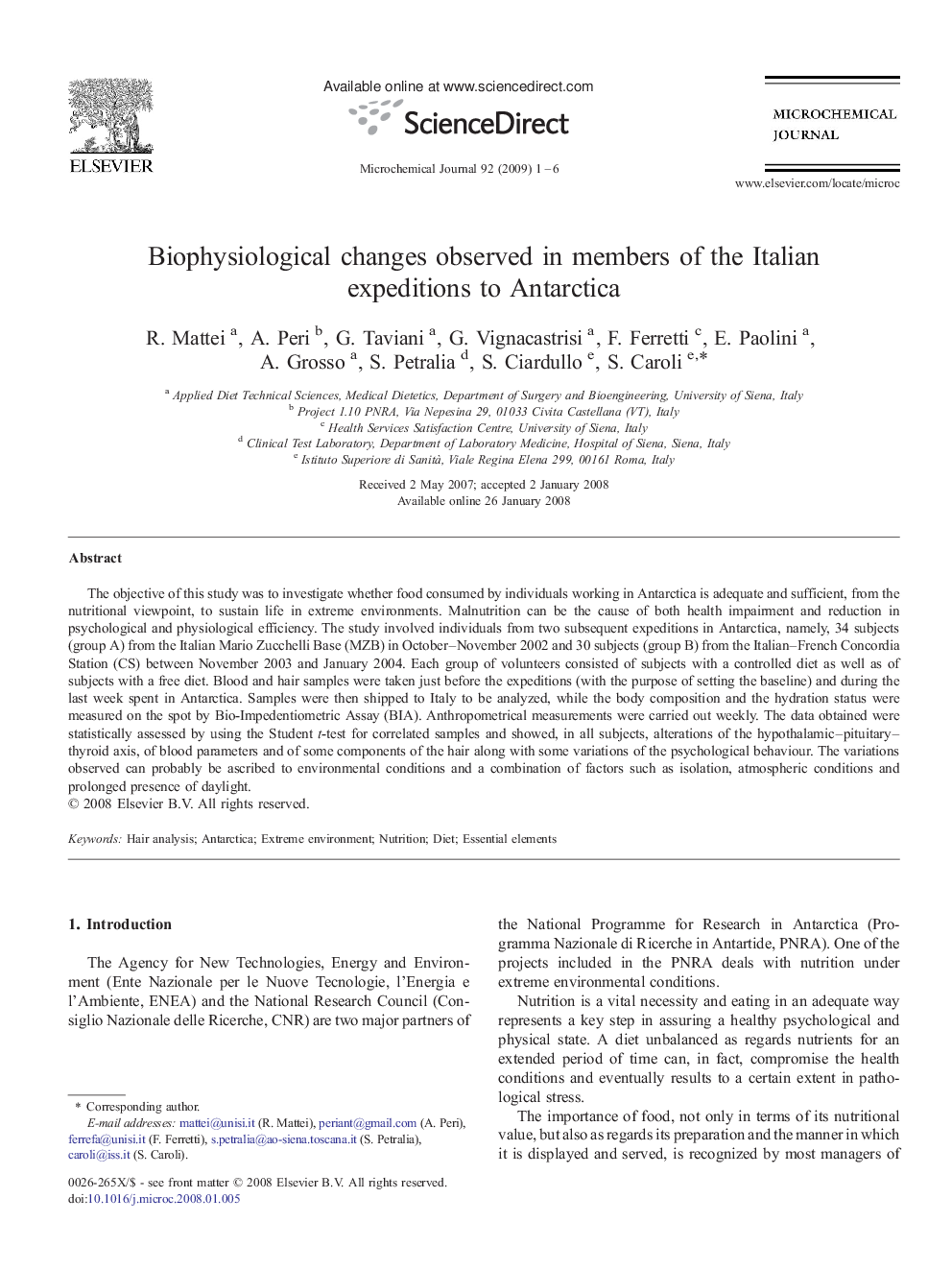| Article ID | Journal | Published Year | Pages | File Type |
|---|---|---|---|---|
| 1228555 | Microchemical Journal | 2009 | 6 Pages |
Abstract
The objective of this study was to investigate whether food consumed by individuals working in Antarctica is adequate and sufficient, from the nutritional viewpoint, to sustain life in extreme environments. Malnutrition can be the cause of both health impairment and reduction in psychological and physiological efficiency. The study involved individuals from two subsequent expeditions in Antarctica, namely, 34 subjects (group A) from the Italian Mario Zucchelli Base (MZB) in October-November 2002 and 30 subjects (group B) from the Italian-French Concordia Station (CS) between November 2003 and January 2004. Each group of volunteers consisted of subjects with a controlled diet as well as of subjects with a free diet. Blood and hair samples were taken just before the expeditions (with the purpose of setting the baseline) and during the last week spent in Antarctica. Samples were then shipped to Italy to be analyzed, while the body composition and the hydration status were measured on the spot by Bio-Impedentiometric Assay (BIA). Anthropometrical measurements were carried out weekly. The data obtained were statistically assessed by using the Student t-test for correlated samples and showed, in all subjects, alterations of the hypothalamic-pituitary-thyroid axis, of blood parameters and of some components of the hair along with some variations of the psychological behaviour. The variations observed can probably be ascribed to environmental conditions and a combination of factors such as isolation, atmospheric conditions and prolonged presence of daylight.
Related Topics
Physical Sciences and Engineering
Chemistry
Analytical Chemistry
Authors
R. Mattei, A. Peri, G. Taviani, G. Vignacastrisi, F. Ferretti, E. Paolini, A. Grosso, S. Petralia, S. Ciardullo, S. Caroli,
